Tiny House Appendix Q Adopted in New York State, Considered in New Hampshire and Connecticut
Great news for Tiny Houses in the Northeast!
- Appendix Q, also known as the Tiny House Appendix, has been adopted in New York State and will become law in early 2020.
- New Hampshire and Connecticut are both considering adopting the Appendix into their state building codes.
- Maine and Massachusetts have already adopted Appendix Q into their building codes, as well as at least five other states not in the northeast.
How can you support the adoption of the Tiny House Appendix in New Hampshire and Connecticut?
If you live in New Hampshire, please email the chair of the Tiny House Study Committee, State Rep Dave Testerman at [email protected] to express your support for the adoption of Appendix Q for tiny houses on foundations.
The public comment period for Connecticut residents is not open yet. When it opens up, this post will be updated with the contact info.
The following information on Appendix Q is adapted from our previous blog post, written when Massachusetts adopted the Tiny House Appendix.
What is Appendix Q: Tiny Houses?
Appendix Q: Tiny Houses provides building safety standards for houses on foundations that are 400 sq. ft. and under. The other building codes in existence for all other size dwellings still apply. Appendix Q is was created to define safety standards for smaller spaces that wouldn’t necessarily fit into a tiny house, such as a full-size staircase.
The Appendix pertains to the following aspects of designing a small or tiny house:
- Ceiling Height
- Loft Minimum Area, Height and Dimensions
- Loft Access:
- Stairway width, headroom, treads and risers, landing platforms, handrails and guards
- Ladder size, capacity, and incline
- Alternating tread devices
- Ship’s ladders
- Loft guards
- Emergency Escape and Rescue Openings
Read the entire text of Appendix Q: Tiny Houses here.
Does The Adoption of Appendix Q Mean I Can Build A Tiny House Wherever I Want In My State?
Not quite! Every zone of every municipality in the state still has its own zoning bylaws. Therefore, you’ll need to contact your municipality to see if they’ll allow your tiny-house-on-a-foundation project. Here’s how.
Here’s what the Tiny House Appendix does mean for residents of states that have adopted Appendix Q: wherever a house that’s 400 sq. ft. or under is allowed, there are now rules in place for how to build it safely and effectively. Before, small and tiny houses on foundations would have had to adhere to certain building codes that work well for large buildings but would have been impractical or impossible to follow in small spaces.
What’s the difference between zoning code and building code?
Building code provides a set of safety standards that new buildings must adhere to by law. These standards ensure the safety of the people using the building. There are separate building codes for residential buildings (like houses and apartment buildings) and all other buildings (like shops, factories, schools, and workplaces). The Tiny House Appendix is set to become part of the state building code in NH and CT, which is based on the International Residential Code (IRC). Most, but not all, states in the USA use the IRC as the basis for their state-wide building codes, and adapt each section as necessary.
Zoning code pertains to what types of buildings municipalities (cities and towns) allow, and where. Often a city or town has several different zones, and each zone has different rules. Zoning bylaws are decided by the zoning board of a city or town, and can be amended to better fit the needs of each city or town. Zoning boards generally have regular meetings that are open to the public, where the public can share their concerns, get clarification on what is allowed to be built, and request a change to the zoning bylaws to improve their municipality.
How can the Tiny House Appendix influence local zoning officials? Appendix Q as part of a state’s building code serves to legitimize tiny and small dwelling spaces in the eyes of local building inspectors and zoning boards. Municipalities that see there are ICC-approved codes to build tiny and small houses may be more inclined to adopt those types of homes into their zoning.
Left: Appendix Q applies to tiny houses on foundations that are 400 sq. ft. or under.
Right: Appendix Q does not apply to tiny houses on wheels.
How Does The Tiny House Appendix Relate To Tiny Houses On Wheels?
Currently, the Tiny House Appendix, or Appendix Q, only regulates houses that are permanently-affixed. It does not relate to tiny houses on wheels. However, there is a movement to create a new version of Appendix Q for tiny houses on wheels as well. Martin Hammer, Andrew Morrison, and Gabriella Morrison were instrumental in introducing Appendix Q to the International Building Code and then again to individual states. See their website for more info on future plans for a tiny house on wheels appendix.
B&B Micro Manufacturing would like to give a shout-out to the Tiny Home Industry Association for its tireless research on tiny house laws across the nation and the American Tiny House Association for its influence on state policy!
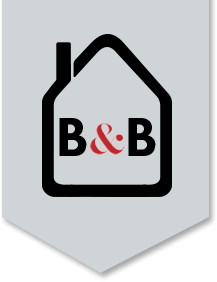
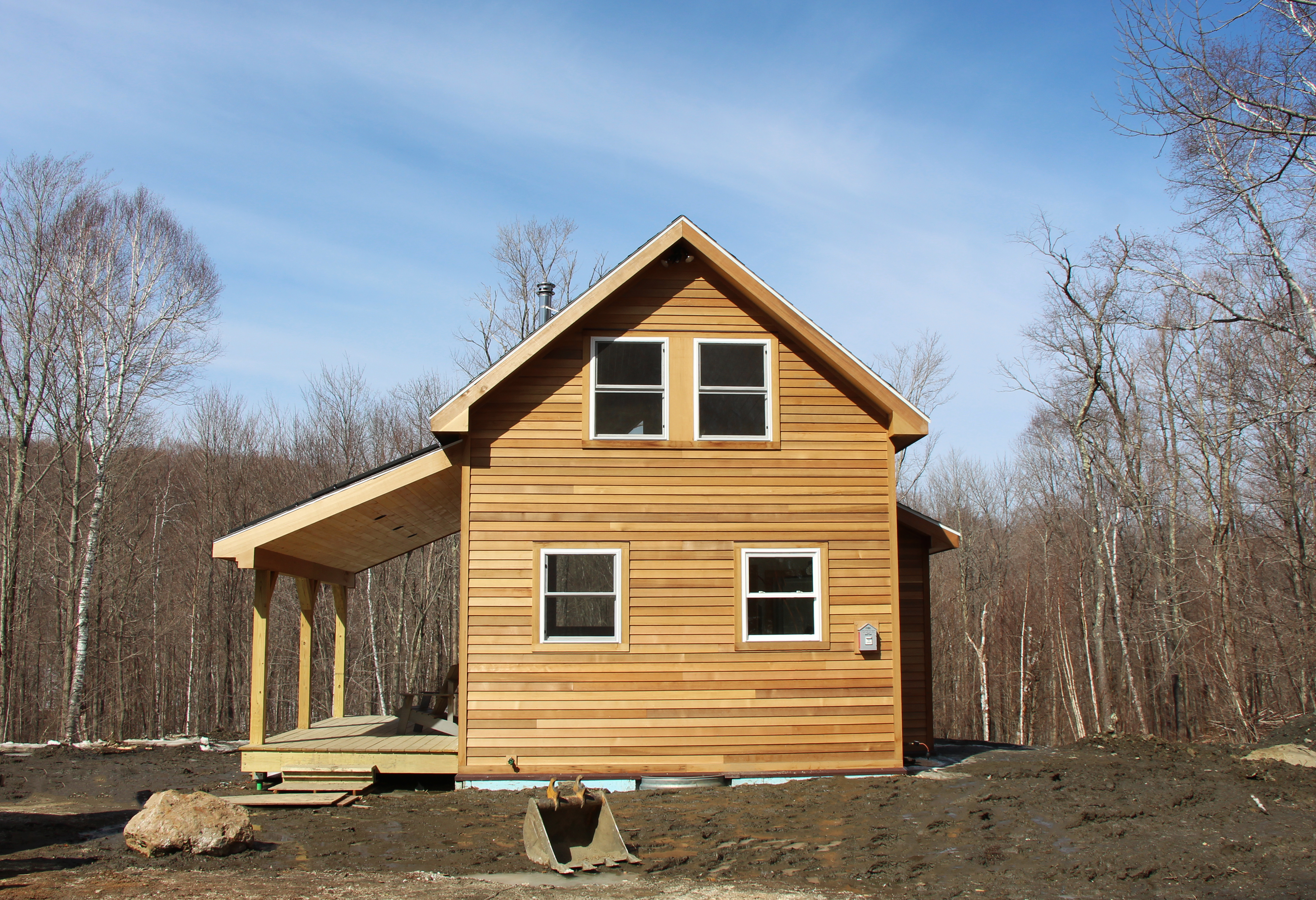
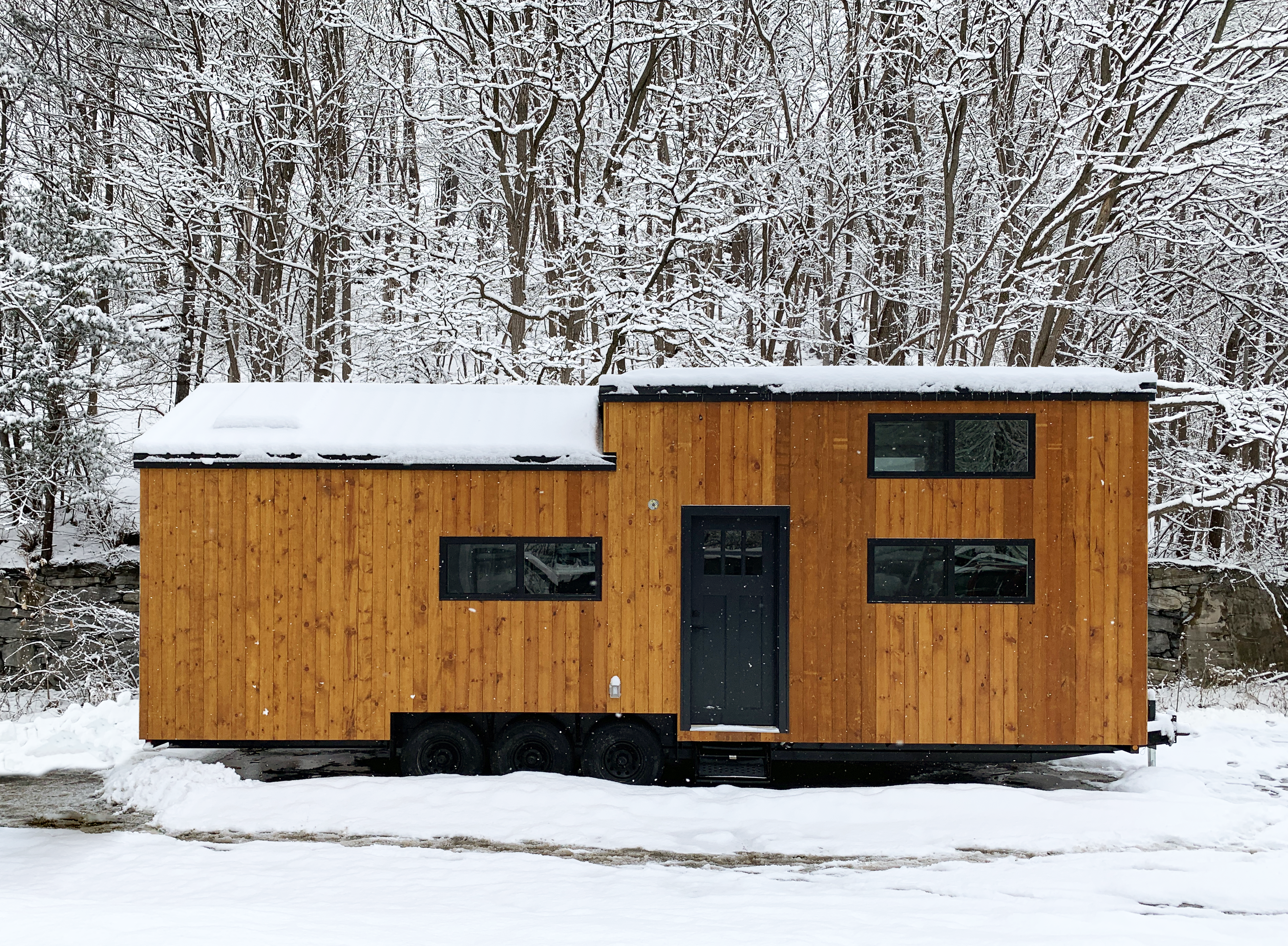
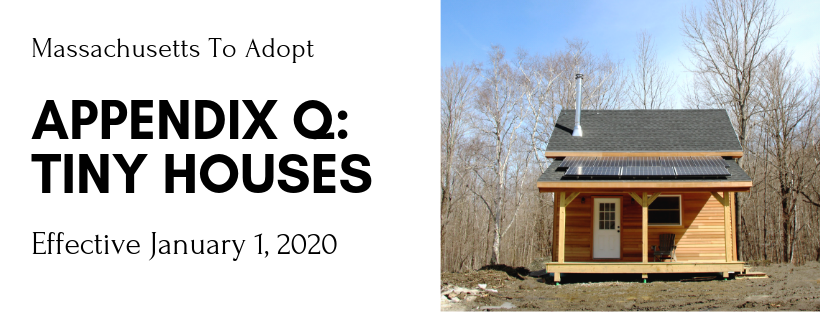
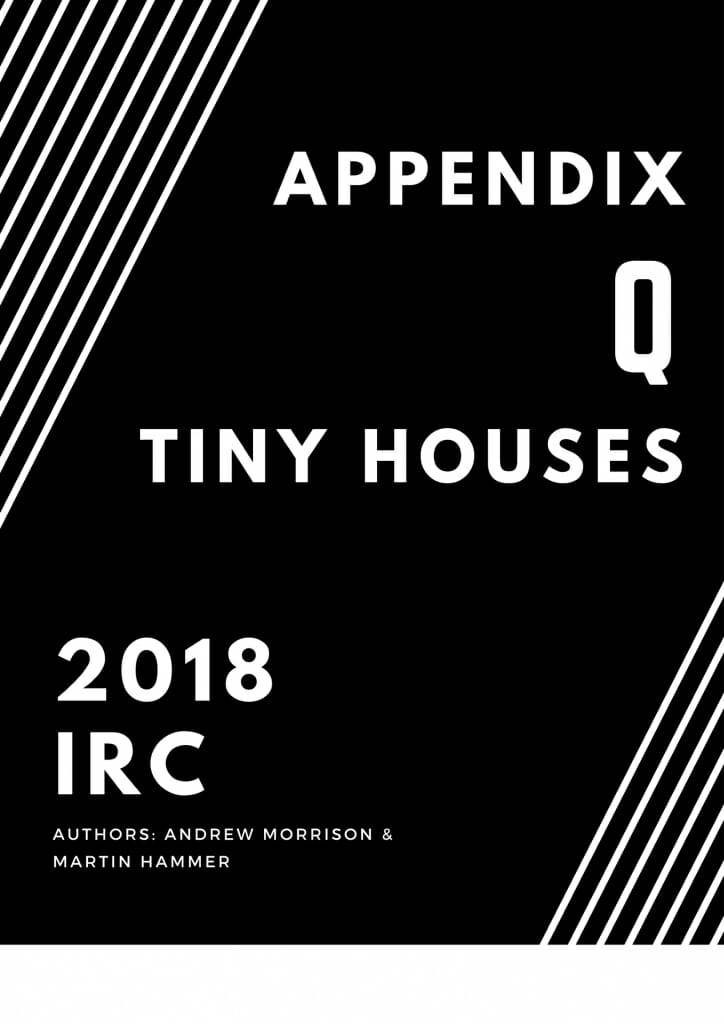 What is Appendix Q: Tiny Houses?
What is Appendix Q: Tiny Houses?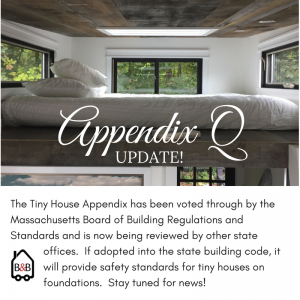 The Tiny House Appendix has been voted through by the Massachusetts Board of Building Regulations and Standards! It is now being reviewed by other state offices. If adopted into the state building code, IRC 2018, it will provide safety standards for building tiny houses on foundations in Massachusetts.
The Tiny House Appendix has been voted through by the Massachusetts Board of Building Regulations and Standards! It is now being reviewed by other state offices. If adopted into the state building code, IRC 2018, it will provide safety standards for building tiny houses on foundations in Massachusetts.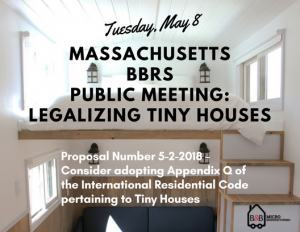 Meeting Addressing Tiny Houses in Massachusetts’ Building Code
Meeting Addressing Tiny Houses in Massachusetts’ Building Code